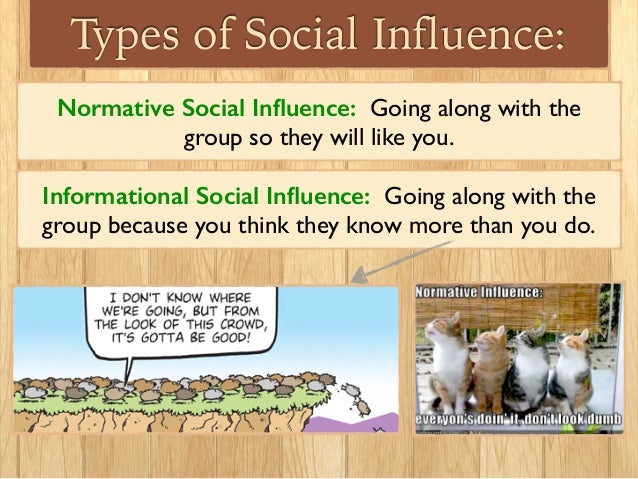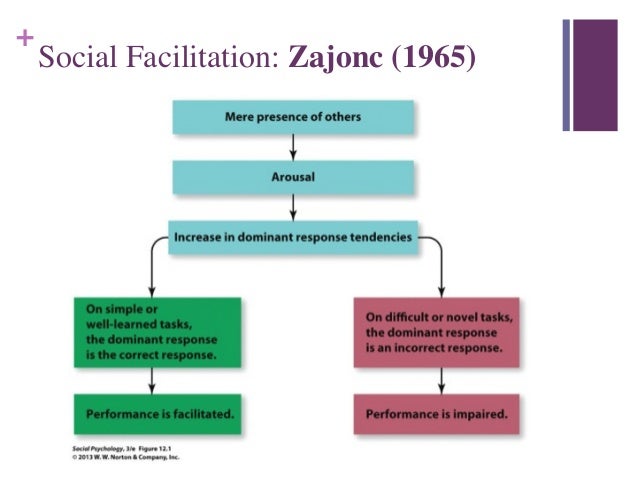SOCIAL PSYCHOLOGY
Social Psychology - Psychology is the logical investigation of how individuals act, think, and feel. Social psychology research considers how individuals act, think, and feel with regards to society. That is, the means by which individuals' practices, considerations, and emotions change as a result of other individuals.

Attribution Theory - Attributions are deductions that individuals make about the reasons for occasions and conduct. Individuals influence attributions keeping in mind the end goal to comprehend their encounters. Attributions firmly impact the way individuals associate with others.
EXAMPLE : Solamon's motorbike breakdown in the interstate road. In the event that he trusts the breakdown happened in context of his carelessness about motorbikes, he is making an inner attribution. In the event that he expect that the breakdown happened in light of the way that his motorbike is old, he is making an outside attribution.
Fundamental Attribution Error - The fundamental attribution mistake is the propensity to ascribe other individuals' conduct to inside variables, for example, identity characteristics, capacities, and emotions.0
EXAMPLE : Maan nods off in class.Shita ascribes her behavior to sluggishness. When he nodded off in class a week ago, be that as it may, he ascribed his own particular conduct to the dusk 'til dawn affair he pulled completing a research paper.

COMPLIANCE TECHNIQUES - Behavior likewise influences states of mind. Confirmation for this originates from the foot-in-the-door wonder and the impact of pretending.People tend to be more likely to accept to a hardest request if they have first agreed to an easy one. This is called the foot-in-the-door phenomenon.
EXAMPLE : Jack will probably give an associate a chance to obtain Divya's tablet for a day on the off chance that he initially convinces Divya to give Jack a chance to acquire her course reading for a day.
EXAMPLE : On the off chance that a natural life safeguarding association sends Harry a stack of notepaper customized with his name, he may feel committed to send them the gift they need.

The Lowball Technique - The lowball technique includes making an alluring recommendation and uncovering its drawbacks simply after a man has consented to it.
EXAMPLE : A house salesman reveals to Sheila that a house she is keen on purchasing costs $20,000 After she has focused on purchasing the house, the sales representative calls attention to that including a ceiling texture, an air conditioning and cooling system, and floor mats will cost an additional $8,000.
That's Not All - People frequently endeavor to change others' states of mind through influence. There are four components associated with influence: the source, the recipient, the message, and the channel.
Informational Social Influence - Some of the time you may need to search out specialists, comply with the way others or a gathering are acting, or look to some other wellspring of data. One other route is to utilize enlightening social impact; you look to the practices of other people who are additionally in the same or comparable circumstance to perceive how they carry on.
EXAMPLE : You go to another country or over seas , where some pleasant outsiders offer to indicate you around. They choose to take you to one of their brandishing occasions that is dissimilar to anything you have ever observed. The issue is that, since you have no clue what the diversion is about, you don't recognize what is great, awful, when to cheer, boo, or acceptable behavior all in all. What would you be able to do? You can basically observe how others are carrying on, what they respond to, what is happening when they cheer, when they boo. Along these lines, you look for data from your social environment, which impact your conduct.
EXAMPLE : An excellent example of normative social influence can be found in an experiment performed by Solomon Asch, a famous psychologist who studied conformity. One of his most well-known experiments had to do with people judging the lengths of lines.
Situational Factors - Situational Factors (otherwise called External Factors) are impacts that don't happen from inside the individual yet from somewhere else like the earth and others around you.
EXAMPLE :Situational factors are your condition, work and school, and the general population around you.
Social Thinking
Attribution Theory - Attributions are deductions that individuals make about the reasons for occasions and conduct. Individuals influence attributions keeping in mind the end goal to comprehend their encounters. Attributions firmly impact the way individuals associate with others.
EXAMPLE : Solamon's motorbike breakdown in the interstate road. In the event that he trusts the breakdown happened in context of his carelessness about motorbikes, he is making an inner attribution. In the event that he expect that the breakdown happened in light of the way that his motorbike is old, he is making an outside attribution.
Fundamental Attribution Error - The fundamental attribution mistake is the propensity to ascribe other individuals' conduct to inside variables, for example, identity characteristics, capacities, and emotions.0
EXAMPLE : Maan nods off in class.Shita ascribes her behavior to sluggishness. When he nodded off in class a week ago, be that as it may, he ascribed his own particular conduct to the dusk 'til dawn affair he pulled completing a research paper.
ATTITUDE :Attitudes are assessments individuals make about articles, thoughts, occasions, or other individuals. Mentalities can be sure or negative. Express mentalities are cognizant convictions that can control choices and conduct. Understood states of mind are oblivious convictions that can in any case impact choices and conduct. Demeanors can incorporate up to three segments: psychological, passionate, and behavioral
EXAMPLE :Jenny trusts that drinking liquor is undesirable, feels disturbed when individuals alcoholic around her, and abstains from being in circumstances where individuals drinks
COMPLIANCE TECHNIQUES - Behavior likewise influences states of mind. Confirmation for this originates from the foot-in-the-door wonder and the impact of pretending.People tend to be more likely to accept to a hardest request if they have first agreed to an easy one. This is called the foot-in-the-door phenomenon.
EXAMPLE : Jack will probably give an associate a chance to obtain Divya's tablet for a day on the off chance that he initially convinces Divya to give Jack a chance to acquire her course reading for a day.
The door-in-the-face is a verifiable decide in numerous social orders that tells individuals they should return supports or endowments given to them. A man or gathering can control this standard to influence it more probable that to individuals will purchase an item or make a gift.
EXAMPLE : On the off chance that a natural life safeguarding association sends Harry a stack of notepaper customized with his name, he may feel committed to send them the gift they need.
The Lowball Technique - The lowball technique includes making an alluring recommendation and uncovering its drawbacks simply after a man has consented to it.
EXAMPLE : A house salesman reveals to Sheila that a house she is keen on purchasing costs $20,000 After she has focused on purchasing the house, the sales representative calls attention to that including a ceiling texture, an air conditioning and cooling system, and floor mats will cost an additional $8,000.
EXAMPLE : You go to another country or over seas , where some pleasant outsiders offer to indicate you around. They choose to take you to one of their brandishing occasions that is dissimilar to anything you have ever observed. The issue is that, since you have no clue what the diversion is about, you don't recognize what is great, awful, when to cheer, boo, or acceptable behavior all in all. What would you be able to do? You can basically observe how others are carrying on, what they respond to, what is happening when they cheer, when they boo. Along these lines, you look for data from your social environment, which impact your conduct.
Normative Social Influence - When somebody fits in with a gathering since they need to individuals to like them, this is known as regulating social impact. Gatherings have an arrangement of unwritten guidelines or practices they take after, and individuals frequently take after these principles subliminally. These essential unwritten behavioral rules in various gatherings and social orders individuals have a tendency to take after are known as standards. Keeping in mind the end goal to stay preferred by everyone around us, we need to take after these standards, so we adjust to their practices.
EXAMPLE : An excellent example of normative social influence can be found in an experiment performed by Solomon Asch, a famous psychologist who studied conformity. One of his most well-known experiments had to do with people judging the lengths of lines.
EXAMPLE :Situational factors are your condition, work and school, and the general population around you.
Social Loafing - To decreases in the efficiency of a gathering, is the diminished exertion individuals put resources into an errand when they are working with other individuals. Dispersion of duty adds to social loafing. A man does not feel as in charge of dealing with an assignment if a few others are additionally present, since obligation is dispersed among every one of those present.
Social Facilitation - In a few conditions, people perform better when other individuals are available. This marvel is called social help. Social help will probably happen on simple errands. On troublesome errands, individuals are probably going to perform more regrettable within the sight of others.
Stereotype - Beliefs about people based on their membership in a particular group. Stereotypes can be positive, negative, or neutral. Stereotypes based on gender, ethnicity, or occupation are common in many societies.
EXAMPLE : Individuals may stereotype ladies as supporting or utilized auto salesmen as exploitative.
- People’s perceptions are influenced by their expectations.
EXAMPLE : Eliz has a stereotype of elderly individuals as rationally flimsy. When she sees an elderly lady sitting on a seat alone, talking so anyone can hear, she conceives that the lady is conversing with herself since she is temperamental. Eliz neglects to see that the lady is really chatting on a phone.
Prejudice - A negative conviction or feeling about a specific gathering of people. Partialities are regularly passed on starting with one age then onto the next.Prejudice is a ruinous marvel, and it is inescapable in light of the fact that it serves numerous mental, social, and financial capacities:
EXAMPLE : Rachel’s parents came from a working-class background but are now wealthy business owners. Rachel might develop a dislike of the working class because she does not want to be identified with working-class people. She believes such an association would damage her claim to upper-class social status.
Passionate love : Involves absorption in another person, sexual desire, tenderness, and intense emotion.
Compassionate love: Involves warmth, trust, and resilience of someone else. Merciful love is now and again considered to have two segments: closeness and duty. Closeness is the warm, close, sharing part of a relationship. Responsibility is the expectation to proceed with the relationship even despite troubles. Analysts trust responsibility is a decent indicator of the security of a relationship.
EXAMPLE OF (IN GROUP BIAS)
Scapegoat theory - is a social psychological that identifies with bias. As indicated by this hypothesis, individuals might be bias toward a gathering so as to vent their outrage. Fundamentally, they utilize the gathering they loathe as their objective for the greater part of their outrage as a vent'
The just-world phenomenon - is the tendency for people to believe that the world is just and that people therefore get what they deserve and deserve what they get.











Comments
Post a Comment